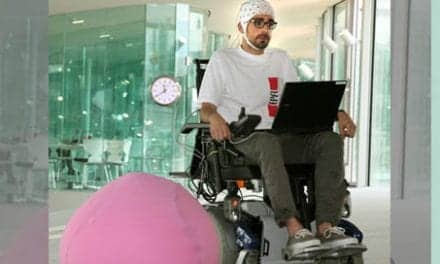UCLA researchers found that a machine-learning algorithm could help doctors identify people with a higher risk for cardiovascular disease.
New UCLA research suggests that a novel machine-learning technique known as “causal forest” was about 5 times more efficient than the current clinical practice of treating patients with high blood pressure.
Under current practice, physicians treat patients with high blood pressure, assuming that people at greatest risk for adverse outcomes and death from a disease benefit the most from lowering blood pressure.
In recent years, however, there have been advances in how machine learning can predict adverse health outcomes due to high blood pressure based on one’s characteristics, which allows clinicians to examine the extent to which an intervention’s effects can vary between individuals and thus tailor treatments to the patient’s needs.
Using a technique called “the causal forest,” the researchers found that people at the highest risk for cardiovascular disease, such as those with high blood pressure or hypertension, do not always benefit most from intensive pressure control, said lead author Dr Kosuke Inoue, who undertook the study while an epidemiology graduate student at the UCLA Fielding School of Public Health and is now an associate professor of social epidemiology at Kyoto University.
“We found that a substantial number of individuals without hypertension benefited from lowering their blood pressure,” said Inoue. “By applying the causal forest method, we found that treating individuals with high estimated benefits provided better population health outcomes than the traditional high-risk approach.”
The study is published in the peer-reviewed International Journal of Epidemiology.
The causal forest is a machine-learning algorithm that estimates the effects of an intervention on an outcome based on the person’s characteristics, allowing for personalized predictions of how each individual will benefit from a given treatment.
The standard practice now is to treat all people who are at high risk for adverse health outcomes, such as stroke for people with hypertension, with options that may not necessarily benefit everyone. For instance, some people with high blood pressure may not benefit from blood pressure-lowering medications because they may have other underlying health issues that are more important risk factors for cardiovascular diseases, such as diabetes.
For the current study, the researchers used data from nearly 10,700 people from the Systolic Blood Pressure Intervention Trial (SPRINT) and the Action to Control Cardiovascular Risk in Diabetes Blood Pressure (ACCORD-BP) trial. They also estimated the effect of these approaches using data on 14,600 US adults from the National Health and Nutrition Examination Surveys (NHANES) 1999–2018.
The researchers applied the causal forest method to participants’ data of these two trials to predict the effect of individualized treatment to reduce adverse cardiovascular outcomes at 3 years.
They found that intensive blood pressure control benefited nearly 80% of people with blood pressure readings at or above 130 mmHg. The high-benefit approach outperformed the high-risk approach by almost 8 percentage points.
While there is a need for more research, the findings suggest that the high-benefit approach, which targets individuals with high estimated health benefits of lowering blood pressure, has the potential to substantially increase the effectiveness of treatment and improve population health outcomes, and could change the current treatment strategy in clinical practice and political decision-making, the researchers note.
“The findings of our study shed light on a powerful machine learning algorithm that enables us to identify individuals who would benefit the most from strict blood pressure control, which can be a crucial element in achieving precision medicine,” said senior author Dr Yusuke Tsugawa, an associate professor of medicine in the division of general internal medicine and health services research at the David Geffen School of Medicine at UCLA and of health policy and management at the Fielding School.
Photo 155539031 / Artificial Intelligence © Leowolfert | Dreamstime.com





